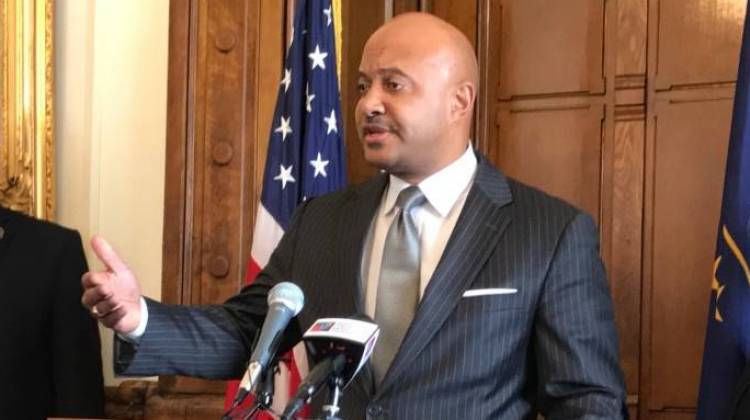
Attorney General Curtis Hill says he'll continue to live in Indianapolis, as he has since taking office in January.
Brandon Smith/IPBAttorney General Curtis Hill will continue to live in the Indianapolis area despite the repeal of a law requiring him to do so.
Senate Bill 400 changed two words in the Indiana code: “at Indianapolis” became “in Indiana.” That refers to where the attorney general is required to live.
The attorney general was the only statewide elected officer – other than the governor – statutorily mandated to live in the capital city. Bill author Sen. Aaron Freeman (R-Indianapolis) says that may have made sense when it was written in the 1800s.
“You know I think in today’s world, with the travel as accessible as it is, I thought that that was an outdated law that we had,” Freeman says.
While Rep. Scott Pelath (D-Michigan City) says that may be reasonable, he doesn’t like making the change in the middle of the office holder’s term.
“I believe that when people run for office, they know the terms and conditions of the office that they’re seeking,” Pelath says. “And to change that because it’s an inconvenience or uncomfortable, I think isn’t the right thing to do – and I don’t think it’s the right thing to do for any office.”
Hill, who’s from Elkhart, calls the bill “common-sense legislation.” But he notes he’s lived in Indianapolis since he took office and will continue to do so.
 DONATE
DONATE






 View More Programs
View More Programs


 Support WFYI. We can't do it without you.
Support WFYI. We can't do it without you.